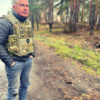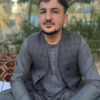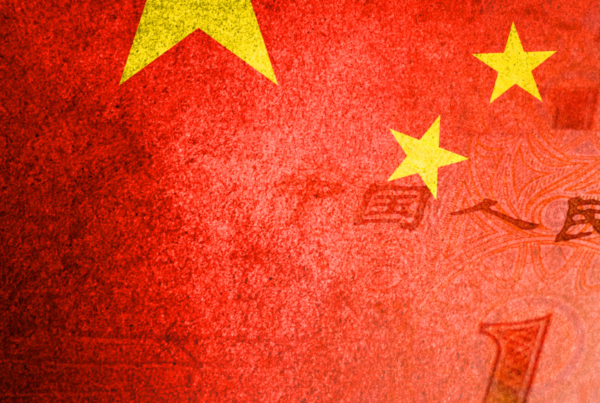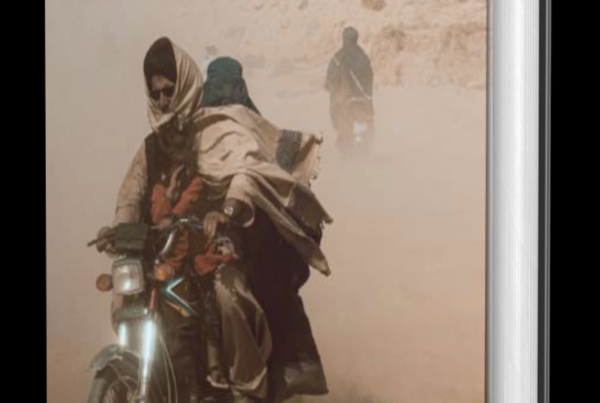KABUL, Afghanistan – Outside the gates of the Ministry of Justice, a quiet compound amid the bustle of Kabul, a Taliban security officer – incensed by my presence – vehemently tries to stop me from entering the revered government building.
My infraction? Despite my fully covered dress, mask and hijab, the guard could still see my face. It is that visceral moment I am sure many Afghan women experience, neither seen nor heard, that is hard to explain. However, the Emirate is not necessarily monolithic in how it perceives women’s presence. In my case, the spokesperson for the Ministry of Justice – Mawalawi Abdul Hameed Jahadyar – argues back until I am finally allowed inside the near-empty hallways.
I meet Abdul inside a bright white room with plastic flowers and cups of green tea. He is softly-spoken, bearded, twenty-five years old and worked for the Cultural Commission under the Taliban’s long-standing “shadow government” during the Islamic Republic era. He wears large-framed glasses, hails from Laghman province, and is a serious student of Islamic studies. Abdul doesn’t look at me when he speaks but repeatedly welcomes me to the country.
First and foremost, I am curious to learn what has changed from a legal purview since the Emirate resumed power in Afghanistan in the late summer of 2021.
“There have been many changes in the economic and political scenarios. In the political part, Afghanistan has an independent system and does not depend on anyone else,” Abdul declares, adding that the “small groups of people who had powers,” which I take to mean different political parties and warlords, “have been removed.” “Political parties which were working to create problems between people based on land, language, ethnicity – all of them have been stopped. Now, we have a wholly united Islamic system.”
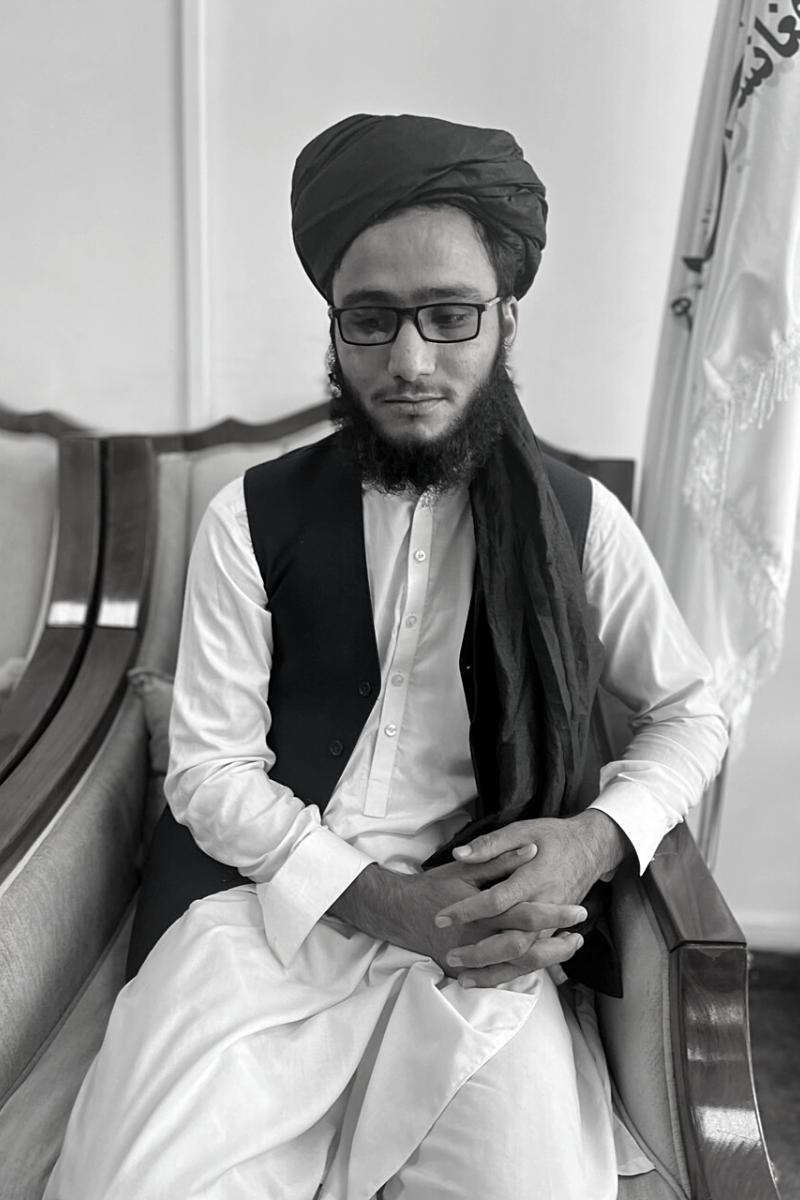
That system runs solely under the white-and-black banner of the Islamic Emirate, without recognized political opposition or other parties, as it was under the U.S.-backed Islamic Republic epoch. The way Abdul sees it, the issues of Afghan people “will be solved easier now.”
“Earlier, if there was a request for something, or someone had a case pending with the government, the case would take six months or so to solve. (A request) would lie on the table of one of the persons, and they would not take it forward,” he claims. “Now, as soon as it comes to the table, the responsible person is forced to take care and get it done. A case that used to take six months, we get resolved in one week.”
Much of the previous government’s struggle to wade through the dusty files of legal complaints were hamstrung by deeply systemic corruption, a notion not lost on the newfangled Taliban. While reporting on Afghanistan, I was persistently shocked and dismayed at how widespread the misdealing was in every branch, Ministry, and entity awash with foreign funds. It was even to the point where crimes were concocted and innocent individuals, especially out in the provinces, were accused of crimes that never even happened so that all parties involved – from the defendant to the police to the lawyers and the Judge – could solicit bribe monies.
From my lens, this normalized corruption dismantled trust and strength in the Republic of Afghanistan and ultimately led to its demise. Time will only tell if the Taliban walks a similarly wayward path, albeit without the cash cow brought in by the international community.
“We have strengthened the capabilities of the people involved in the monitoring of the corruption, (we are) monitoring it on an everyday basis,” Abdul asserts. “We also have audit committees to oversee the corruption across the ministries. (In the last government) they had audit committees, but even those people were involved with the corruption, so how can they prevent it?”
(I later fact checked the statement with a close associate, a high-ranking official under the Ghani administration. He concurs that the former President attempted to put in place a particular body for monitoring corruption across the government. Still, it was quickly revealed that they were also taking bribes and acting corruptly, tackling the issue next to impossible.)
Moving on, I endeavor to learn about the transformation of the legal system and how the Taliban regime is implementing its version of Shariah Law.
According to the Taliban’s “standpoint” on the Ministry of Justice website, their central tenant is to provide the “Rule of law and Access to Justice without any discrimination across Afghanistan.” The statement pledges to provide free legal aid to “destitute suspected persons,” resolve legal disputes at early stages before a court referral is needed and “provide legal awareness to the general public.”
Abdul quickly points out that the essence of their legal framework is the Hanafi Islamic code. This is defined as “relating to an orthodox school of Sunni Muslim jurisprudence followed especially in southern and central Asia” and is considered one of the four schools of Islamic law founded by Abu Hanifa. The Britannia Encyclopedia informs me that “although the Ḥanafī school acknowledges the Qurʾān and the Hadith (narratives concerning the Prophet Muhammad’s life and sayings) as primary sources of law, it is noted for its extensive reliance on systematic reasoning (raʾy) in the absence of precedent.”
“Islam has granted us different schools of thought, and the Islamic Emirate follows the Hanafi,” Abdul explains. “So they follow the philosophy and method with that, and what is clear is that if there is a small doubt (as to whether an individual committed a crime), you cannot implement the Sharia punishments.”
He further details that the Hanafi method draws its legal code primarily from the Quran and Hadiths but also requires the forming of an ijma – a conglomerate of the highest-level Islamic scholars – to determine definite, infallible Islamic laws about matters that were not around during the time of the Prophet, thus not explicitly addressed in the existing texts.
Abdul notes that the Emirate has “started implementing the Shariah punishments” in certain places (but declined the specify where). However, he says that the areas in which Shariah law has not yet been fully enforced are because “conditions are not ready yet.”
Nevertheless, the objective is for the entire country to exist under the same standard of Shariah repercussions for violations.
“The punishments have been issued for illegal sexual intercourse, theft, stealing and drinking alcohol,” Abdul continues. “For drinking, it is whipping. For theft and stealing, it is cutting hands. If sexual intercourse happens when married, he or she should be stoned. If the person is single, they are whipped.”
When it comes to murder, Abdul states that “Islam has given a lot of value to the blood of humans.”
“If the person is killed, that person should be killed back. Even if a group of people, one hundred people, kill one person, then all people should be killed for that,” he underscores, adding that typically this is done in the same manner in which the victim was slain but that the Hanafi method does in some cases allow for a court to determine a different approach, and also whether the execution will be carried out publicly or behind closed doors.
I think back to the Taliban that ruled Afghanistan with an iron fist in the 1990s and ponder whether the Taliban of a quarter of a century later intends to go down that same chillingly stringent path. According to Abdul, the “law will be the same,” but without the quagmires that existed at that time.
“Last time, we had many problems ourselves, a lot of different things going on in different parts of the country. But it will be very clear for us in the future,” he assures me. “(The previous Taliban) had the rules, the regulations and the orders. They were all there, but not with the small details (we will have now).”
I have to ask about women. As I wander through the halls and faded gardens of the Ministry of Justice, there is not a female in sight. But, like almost all Taliban representatives, Abdul affirms that women can file complaints to their provincial directorate, and they will be acted upon and taken seriously.
However, where women once filled critical roles in government, that precedent has been eliminated. In Abdul’s words, the Emirate has “eliminated the mixed system.”
“The situation is that the environment is not ready to have the woman fully respected. Under the corrupt administration (the Republic government), women were being used as tools and were not respected as humans. But now the Islamic Emirate has created a peaceful environment for them,” he boasts. “And with that peaceful environment, they can be respected in their homes.”
In other words, Abdul says women who held government jobs are still being paid a salary but must remain home taking care of the households rather than going out to work.
Indeed, much of the western reporting focused on Afghanistan over the past fourteen months has centered on the notion of girls and women’s rights, namely the shuttering of secondary schools in most provinces and concerns over job opportunities and freedom of movement.
Abdul repeats the narrative I have heard all too much over the past year – everyone wants all girls to go to school, and they are working to implement the appropriate environment for this to happen. Afghanistan is the only country in the world to restrict education for girls. He tells me the Supreme Leader has issued six articles about women’s rights, including the mandate that a woman must consent to marriage for it to be valid; she has the right to choose a husband should her husband die rather than being forced into another marriage, and if a man has multiple wives, all must be given “equal rights.”
Before I leave, Abdul turns the table and asks me about women’s rights in my own country.
From my western eyes, it is complicated. Everyone perceives the level of progress from their own experience. One of the most critical takeaways as a writer and outside observer is to not always assume your way is the universal ideal, the most au courant.
I say little. The slope is slippery.
And as I venture back out into the spring Kabul sunshine, ready to sputter toward the clattering cabs and dusty roads stuffed with trucks and street sellers and donkeys and overheated food stands, a different security guard comes marching over, demanding to know who let me inside.
The full brunt of what will come of Afghanistan, we still do not yet fully know.




